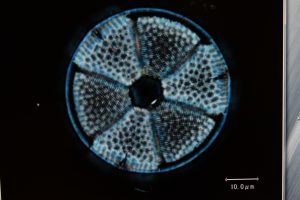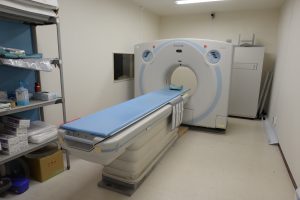Cause of death investigation

Example of diatom examination

16-row multidetector CT
Department of Forensic Medicine, Graduate School of Medicine, The University of Tokyo performs at the request of the police, prosecutors, and other agencies, including judicial autopsies (autopsies of crime victims or suspected crime victims with the permission of the court), investigative autopsies (autopsies performed under the authority of the chief of police under the Act on the Investigation of Cause of Death and on Identification of Bodies Handled by the Police) which in principle include CT scanning, toxicological qualitative test, and pathological testing in every case. Toxicological quantitative test, DNA testing, diatom examinations, semen fluid test, and other various examinations for death investigation are also performed in selected cases.
In addition, the department performs postmortem CT scanning examinations under the Act on the Investigation of Cause of Death and on Identification of Bodies Handled by the Police. However, in most cases, it is difficult to determine the cause of death based on only CT images.
Identification
Confirming the identity of unknown remains (identification) is important for the family of the deceased as well as for society as a whole. Today, DNA analysis, fingerprint, and dental exam are the main methods of identification. At our department, we provide services in these fields (other than fingerprinting) through the combination of Chiba University and Tokyo Medical and Dental University.
Clinical forensic medicine
Legal medicine is also a field that deals with the living. Forensic evaluations of injuries sustained as the result of assault or other criminal activity are important not only for victims’ right but also for avoiding false charge. Child abuse is one of the most notable targets in the field of clinical fore
nsic medicine, which is gaining higher interest recently. We perform services of this area mainly from the ask of the prosecutors.
Forensic investigation in mass disasters
In mass disasters such as an earthquake, tsunami, a terrorist incident, and a plane crash, the first priority is to save lives, but when a lot of people have died, our department is committed to responding with all the resources at its disposal. When the Great East Japan Earthquake and tsunami occurred in 2011, our department sent doctors to the disaster area to carry out post-mortem inspections. We participate in trainings for post-mortem inspections hold by Chiba University in case of mass disasters.
